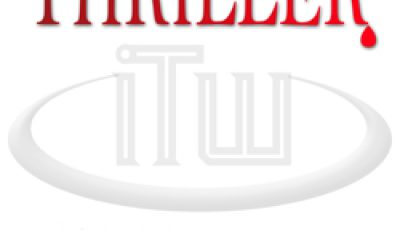

August 6 – 12: “The Historical Thriller: How important is accuracy?”
 This week ITW Members D.P. Lyle, Lissa Kessler, R. Thomas Riley, Yvonne Anderson and Karen Maitland as they discuss the historical thriller and ponder the question: “How Important is accuracy?”
This week ITW Members D.P. Lyle, Lissa Kessler, R. Thomas Riley, Yvonne Anderson and Karen Maitland as they discuss the historical thriller and ponder the question: “How Important is accuracy?”
~~~~~
 D. P. Lyle is the Macavity Award winning and Edgar Award and Scribe Award nominated author of the non-fiction books FORENSICS FOR DUMMIES; FORENSICS & FICTION; MORE FORENSICS & FICTION; and HOWDUNNIT: FORENSICS; the Samantha Cody and Dub Walker Thriller series; and the ROYAL PAINS media tie-in novels. His short story “Even Steven” appears in ITW’s anthology THRILLER 3: LOVE IS MURDER. He has worked with many novelists and with the writers of popular television shows such as Law & Order, CSI: Miami, Diagnosis Murder, Monk, Judging Amy, Peacemakers, Cold Case, House, Medium, Women’s Murder Club, 1-800-Missing, The Glades, and Pretty Little Liars.
D. P. Lyle is the Macavity Award winning and Edgar Award and Scribe Award nominated author of the non-fiction books FORENSICS FOR DUMMIES; FORENSICS & FICTION; MORE FORENSICS & FICTION; and HOWDUNNIT: FORENSICS; the Samantha Cody and Dub Walker Thriller series; and the ROYAL PAINS media tie-in novels. His short story “Even Steven” appears in ITW’s anthology THRILLER 3: LOVE IS MURDER. He has worked with many novelists and with the writers of popular television shows such as Law & Order, CSI: Miami, Diagnosis Murder, Monk, Judging Amy, Peacemakers, Cold Case, House, Medium, Women’s Murder Club, 1-800-Missing, The Glades, and Pretty Little Liars.
 Yvonne Anderson lives in rural Ohio with her husband of 37 years and two of her four grown kids. She also has three grandchildren with two more on the way. Formerly a legal secretary, Yvonne works part time as a Virtual Assistant, but spends most of her time on the planet Gannah researching her books. She’s the contest administrator for Novel Rocket, which was four times named to Writer’s Digest list of the 101 Best Websites for Writers, and shares a few wise words on her personal website.
Yvonne Anderson lives in rural Ohio with her husband of 37 years and two of her four grown kids. She also has three grandchildren with two more on the way. Formerly a legal secretary, Yvonne works part time as a Virtual Assistant, but spends most of her time on the planet Gannah researching her books. She’s the contest administrator for Novel Rocket, which was four times named to Writer’s Digest list of the 101 Best Websites for Writers, and shares a few wise words on her personal website.
 Karen Maitland’s first medieval thriller, COMPANY OF LIARS, was set at the time of the Black Death in 1348, followed by THE OWL KILLERS and THE GALLOWS CURSE, published by Penguin. Her latest historical thriller is FALCONS OF FIRE AND ICE. Karen is also one of six historical crime writers known as the Medieval Murderers, who together write an annual joint murder-mystery novel, including THE SACRED STONE, HILL OF BONES and THE FIRST MURDER.
Karen Maitland’s first medieval thriller, COMPANY OF LIARS, was set at the time of the Black Death in 1348, followed by THE OWL KILLERS and THE GALLOWS CURSE, published by Penguin. Her latest historical thriller is FALCONS OF FIRE AND ICE. Karen is also one of six historical crime writers known as the Medieval Murderers, who together write an annual joint murder-mystery novel, including THE SACRED STONE, HILL OF BONES and THE FIRST MURDER.
 Lisa Kessler is an award winning author of dark paranormal fiction. Her debut novel, NIGHT WALKER, won a San Diego Book Award for best Fantasy-Sci-fi-Horror, and was also a double finalist for the Book Seller’s Best for Best Paranormal and Best First Book. Her short stories have been published in print anthologies and magazines, and her vampire story, IMMORTAL BELOVED, was a finalist for a Bram Stoker award. Lisa lives in southern California with her incredibly fun husband and two amazing kids.
Lisa Kessler is an award winning author of dark paranormal fiction. Her debut novel, NIGHT WALKER, won a San Diego Book Award for best Fantasy-Sci-fi-Horror, and was also a double finalist for the Book Seller’s Best for Best Paranormal and Best First Book. Her short stories have been published in print anthologies and magazines, and her vampire story, IMMORTAL BELOVED, was a finalist for a Bram Stoker award. Lisa lives in southern California with her incredibly fun husband and two amazing kids.
 R. Thomas Riley is the author of the short story collection THE MONSTER WITHIN IDEA (2009-2011) published by Hugo Nominated Apex Publications and re-released as a Kindle exclusive in 2011. IF GOD DOESN’T SHOW (co-written with John Grover) will be published by Permuted Press and Audible.com, July 2012. DIAPHANOUS (co-written with Roy C. Booth) is available now. THE DAY LUFBERRY WON IT ALL was adapted to short film by Frosty Moon Omnimedia in 2010.
R. Thomas Riley is the author of the short story collection THE MONSTER WITHIN IDEA (2009-2011) published by Hugo Nominated Apex Publications and re-released as a Kindle exclusive in 2011. IF GOD DOESN’T SHOW (co-written with John Grover) will be published by Permuted Press and Audible.com, July 2012. DIAPHANOUS (co-written with Roy C. Booth) is available now. THE DAY LUFBERRY WON IT ALL was adapted to short film by Frosty Moon Omnimedia in 2010.
- LAST GIRL MISSING with K.L. Murphy - July 25, 2024
- CHILD OF DUST with Yigal Zur - July 25, 2024
- THE RAVENWOOD CONSPIRACY with Michael Siverling - July 19, 2024
